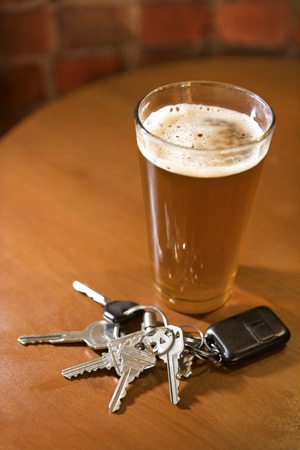Driving and Autos: Driving Under the Influence
Drunk Driving Laws
The Philippine law against drunk driving (the Anti-Drunk and Drugged Driving Act of 2013) does not specify a legal blood alcohol content (BAC). Previously, the legal limit for blood alcohol content (BAC) was set at 0.5 percent. Drivers can be pulled over at a law enforcement officer’s discretion and administered a sobriety test. The law allows the Department of Health, the National Police Commission, and the Department of Transportation of Communications the authority to set thresholds for intoxication. A mandatory drug and alcohol test is administered to driver’s involved in accidents.
The minimum drinking age in the Philippines is 18, while the minimum driving age is 16.
Sobriety Test
If a an officer has reason to believe that a person is driving under the influence of drugs or alcohol, he or she may conduct a field sobriety test, chemical tests (such as a blood, urine, or Breathalyzer test), or a confirmatory test. The test is administered at the officer’s discretion, but if the driver was involved in an accident that lead to injury or death, a sobriety test is mandatory. Refusing a mandatory test results in the confiscation and revocation of the driver’s license.
Driving habits or characteristics of the driver that may trigger a sobriety test include speeding, weaving, lane straddling, sudden stops, swerving, poor coordination, or the smell on the driver’s breath.
Penalties for Driving Under the Influence
Penalties can range from three months of imprisonment, to fines up to P80,000. If a violation results in physical injuries or homicide, the penalties are much more severe. Fines can be as high as P500,000, and prison sentences can reach as high as 12 years. Non-professional driver’s licenses can be suspended for up to 12 months after the driver’s first conviction. After a second conviction, a non-professional license can be permanently revoked.
Drugs and Driving
Driving under the influence of drugs is regulated by the same law, the Anti-Drunk and Drugged Driving Act of 2013, and the regulations are nearly the same as for drunk driving. Drug tests must be conducted at police stations. If an officer believes a driver to be under the influence of drugs, he or she may conduct a field sobriety test, and the driver fails, he or she will be taken to a police station to take a drug test. Penalties range from three months of imprisonment, to fines up to P80,000. If a violation results in physical injuries or homicide, the penalties are much more severe.
Social Attitudes Toward Drinking
In Filipino culture, drinking is accepted and even sometimes expected. Research indicates that alcohol abuse is widespread, although Filipinos may not consider alcoholism a medical problem, and therefore may not seek treatment. Underage drinking is also a problem, and lawmakers have responded by tightening restrictions on the sale of alcohol.
In the recent past, laws about drinking and driving have been inconsistently applied. The Anti-Drunk and Drugged Driving Act of 2013 is the first piece of serious legislation in the Philippines intended to prohibit driving under the influence, and it remains to be seen how attitudes will change in light of the possibility of severe penalties.
Article written for World Trade Press by Nina Bellucci.
Copyright © 1993—2025 World Trade Press. All rights reserved.

 Philippines
Philippines 